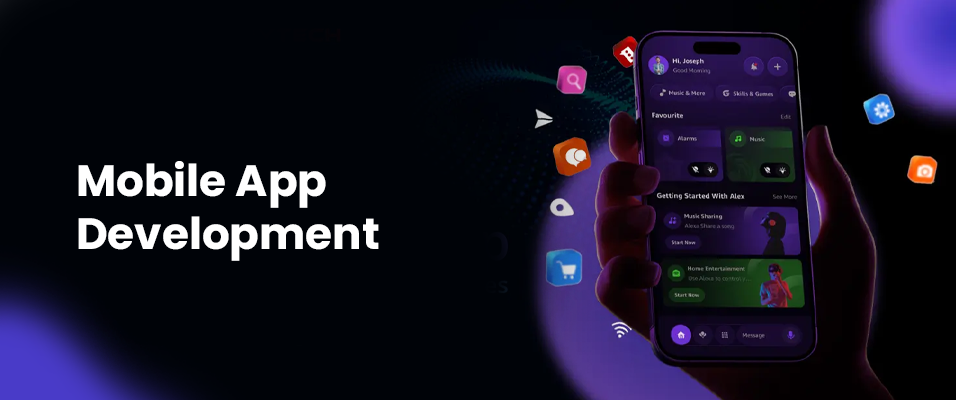Mobile App Development
Mobile App Development
Mobile app development involves the creation of software applications that run on mobile devices such as smartphones and tablets. This process involves designing, coding, testing, and releasing apps for platforms like iOS and Android. The goal is to create engaging and user-friendly apps that provide value to users.

What is Mobile App Development?
Mobile app development is creating software applications that run on mobile devices such as smartphones and tablets. With the increasing use of mobile devices, mobile app development has become an integral part of the digital world.
At Startupflora, we understand the importance of mobile app development for businesses and individuals. That's why we offer comprehensive mobile app development services to help you bring your ideas to life. Our team of skilled developers uses the latest technologies and tools to create engaging and user-friendly mobile apps that provide value to your users.
Types of Mobile App Development
Mobile app development has become a significant part of the digital world as more and more people are turning to mobile devices to access information and services. There are various types of mobile app development, each with unique features and requirements. Here, we will explore the different kinds of mobile app development.
Native App Development
Native app development involves building mobile apps specific to a particular platform, such as iOS or Android. These apps are developed using platform-specific programming languages and tools, such as Java for Android and Objective-C or Swift for iOS. Native apps provide better performance, faster speed, and more reliable functionality than other types of apps.
Hybrid App Development
Hybrid app development combines the features of native and web apps. Hybrid apps are developed using web technologies such as HTML, CSS, and JavaScript and then wrapped in a native container. This approach allows the app to be run on multiple platforms, such as iOS and Android. As a result, hybrid apps offer a lower development cost, a faster time to market, and easy access to device features.
Web App Development
Web app development involves building applications that run on a web browser. These apps are developed using web technologies such as HTML, CSS, and JavaScript, which are then accessed through a web browser. Web apps are platform-independent, meaning they can run on any device with a web browser. As a result, they offer a low development cost and are easy to update.
Progressive Web App Development
Progressive Web Apps (PWAs) are web apps that provide a native-like experience on a mobile device. PWAs are designed to be fast, reliable, and engaging. They are built using web technologies such as HTML, CSS, and JavaScript and can be accessed through a web browser. In addition, PWAs offer features such as offline access, push notifications, and device hardware access, making them a great alternative to native apps.
Cross-Platform App Development
Cross-platform app development involves building apps that can run on multiple platforms, such as iOS and Android. These apps are developed using frameworks such as React Native, Xamarin, and Flutter. As a result, cross-platform apps offer a faster development time and lower cost than native app development. They also provide access to devise features, making them an excellent option for complex apps.
Mobile app development offers businesses and individuals various options for developing mobile applications that cater to their needs. Therefore, understanding the different types of mobile app development is crucial in deciding which approach to use for your project.
Benefits of Mobile Application
Mobile app development offers numerous benefits for businesses and individuals, including:
- Increased Customer Engagement: Mobile apps provide a direct and convenient way to engage customers, increasing brand loyalty and customer retention.
- Improved Efficiency: Mobile apps can automate many business processes, reducing the workload and increasing productivity.
- Greater Accessibility: Mobile apps can be accessed from anywhere, anytime, making it easier for customers to interact with your business.
- Enhanced Marketing: Mobile apps provide new and innovative ways to market your business, such as push notifications and in-app promotions.
- Competitive Advantage: A mobile app can give your business a competitive advantage by providing a unique and engaging customer experience.
- Increased Revenue: Mobile apps can generate additional revenue streams, such as in-app purchases and advertising.
In conclusion, mobile app development offers many benefits that can help businesses and individuals succeed in the digital world. From increased customer engagement to improved efficiency and revenue, a mobile app can provide a significant competitive advantage in today's market.